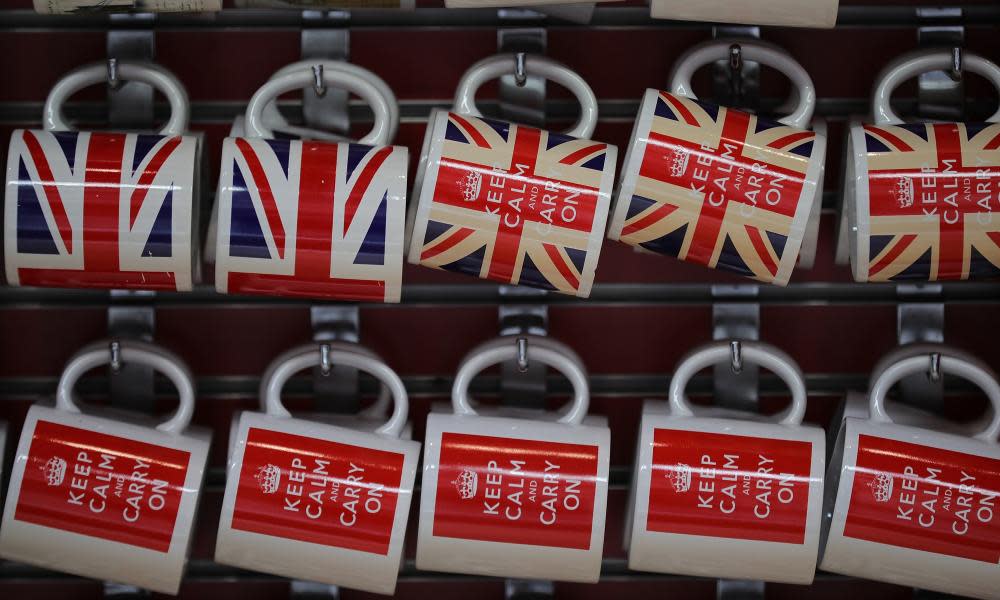The SMEs cashing in on the weak pound

For the public, the price of Marmite was probably the most noticeable impact of the pound losing around 15% of its value since June last year. But the flipside of the coin is that many SMEs are reporting a boost in overseas sales caused by the weaker pound as well as improved sales on the high street as tourists are finding their currency goes much further.
The phenomenon of new-found overseas success has even got its own name, with SMEs who are fuelling growth in foreign markets now referred to as Brexporters.
A case in point is Wrendale Designs in Lincolnshire. The five-year-old greetings card, home furnishings and giftware company began exporting to the US two and a half years ago. Co-founder Jack Dale explains the company has always dealt in dollars in the US and so fixed prices to assure a decent return when the exchange rate was around $1.60 to the pound. Now the rate has moved to around $1.20, margins are up considerably.
“We’ve kept our prices constant but obviously the dollars we’re earning there convert in to around 15% more pounds,” he says.
“That’s great news for us because we source nearly all our materials from inside the UK, which we buy in pounds. The US market is doing really well for us and it’s helping us to stay on track to grow turnover by 30% this year.”
It will come as little surprise that tourist attractions are similarly claiming business is booming, even ahead of the traditionally busier summer period. Julie Trevisan Hunter, head of marketing at the Scotch Whisky Experience in Edinburgh, reveals the attraction, which shows how whisky is made, has had its busiest year ever.
Visitor levels are up 9% on last year and the number who take a tour is up 12%. She puts this down to two related developments.
“The weakness of the pound has made the Scotland an attractive holiday destination, particularly for short-haul travellers from Europe,” she says. “At the same time, the value of the pound versus the euro has made staycations much more attractive for people from the rest of the UK as well.”
Even when companies are not in a field you would readily associate with tourism, the weak pound can still have a major impact on the bottom line. That is certainly what fashion brand Gandys is finding.

Co-founder Paul Forkan says that not only are online international sales up 21% in volume, and nearly 13% in the value, but in-store sales in London have seen a 14% boost in order value, largely due to shoppers from overseas.
“We’re doing really well with tourists who are spending a lot more money in our flagship Spitalfields store in London because they’ve effectively got a 15% discount,” he says.
“It’s far more noticeable than in our other store, in Tunbridge Wells, because of tourism levels. We’re also seeing average basket values shoot up on international orders online for the same reason; when people choose to pay in pounds because their euros or dollars are going a lot further.”
This is exactly what Steve Sanger, founder of The Beard and the Wonderful, a male grooming brand that sells online through its own site and an eBay store, has been experiencing.
“It took a couple of months for the pound to weaken and for people abroad to realise what was happening but towards the end of last year, internationals sales just rocketed,” he says,
“Before then around four-fifths of our business was in the UK but now it’s more like a 50/50 split. On a service like eBay you’d be surprised how even on lower cost items a 15% discount may only bring your cost down by less than a pound but it gets you at the top of search results when people prioritise by price.”
This emergence of Brexporters is not news to Michael McGowan, managing director of Bibby Foreign Exchange. He has seen a sharp rise in SMEs exporting and being more comfortable to deal in dollars and euros. His company allows “hedging” dollar and euro purchases, where an SME fixes a price a month or two in advance so they know they will have enough in the bank for an upcoming purchase. Similarly, business is brisk in turning dollars and euros earned abroad back in to pounds.
“A few years ago many British SMEs were resistant to selling in another currency but since the drop in the pound, they’re increasingly willing to deal in euros or dollars,” he says.
“It makes perfect sense when you’re effectively getting 15% more margin for the same transaction. We’re finding there’s a lot of uncertainty out there so people are hedging rates just a month or two in advance so they’ve got enough in the bank for the short term without overcommitting.”
The ideal situation, right now, he believes, is to be a British SME sourcing materials and products in the UK but then charging dollars or euros when they are exported. Even if products are not sourced in the UK, if a company can earn dollars or euros abroad, the currency can be used to pay for imported materials to protect against any further variation in the pound’s value.
Article 50 is due to be triggered on 29 March, marking the start of formal proceedings for Britain to leave the EU. Nobody can accurately predict what will happen to the value of the pound as trade negotiations begin. However, McGowan believes the pound will strengthen against an “overvalued” euro at some point this year. As for the US, though, although the dollar generally has a record of maintaining its value, he points out that nobody can predict the impact of interest rate rises and Trump’s “America First” trade mantra.
Sign up to become a member of the Guardian Small Business Network here for more advice, insight and best practice direct to your inbox.

 Yahoo News
Yahoo News 
